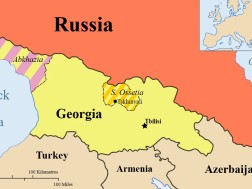Tbilisi (GBC) - The crisis in the Red Sea region in 2023 poses a significant challenge to supply chains, particularly affecting Georgia's auto industry, household goods, and clothing sectors. The escalation in consumer prices within these industries will be contingent on the duration of the conflict. Managing sales and inventory planning becomes a crucial task during this period.
The outcomes of elections have the potential to substantially alter the policies of major global nations toward the region. Therefore, it is crucial to incorporate alternative scenarios into business plans and decision-making processes.
In 2024, the partial outflow of migrants will continue. Nevertheless, this is not expected to have a significant impact on economic growth or exchange rates. In the real estate sector, the impact of migration has faded away in 2023, and the demand in 2024 will be primarily influenced by natural factors such as urbanization, desire to improve living conditions, and normalized investment demand.
The persistent outflow of labor and demographic trends contributes to a prolonged challenge of labor shortages. To address this issue, industries may increasingly tap into the potential of neighboring countries with relatively lower income levels.
In 2024, according to the base scenario, the main macroeconomic indicators - economic growth, inflation, interest rates and the exchange rate - after significant fluctuations in recent years, will be more normalized.




















